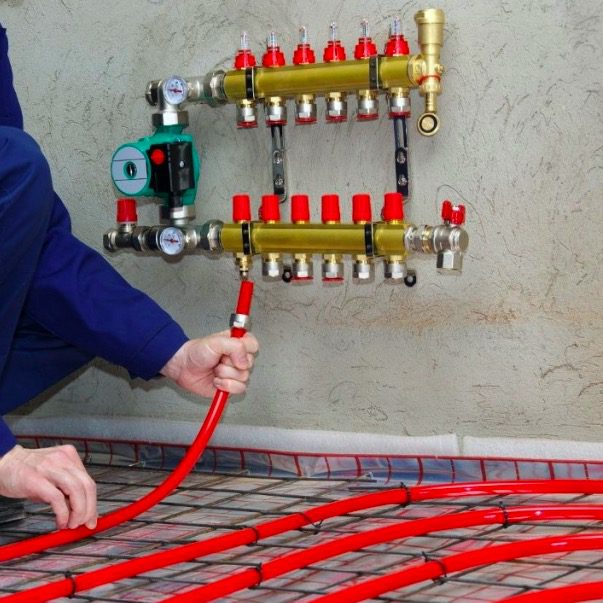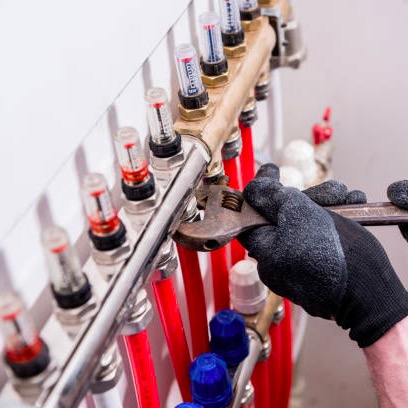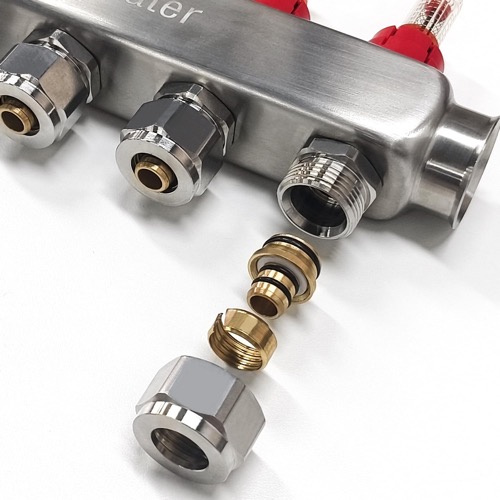A poorly maintained PEX manifold can shorten a whole system’s lifespan. Small issues grow into leaks, callbacks, and unhappy clients.
You can extend your PEX manifold’s lifespan by doing simple regular checks, protecting the system from corrosion, keeping water quality stable, and following a clear maintenance plan.
I share these tips based on almost 20 years in the brass fittings field and many real projects.
How to Maintain Your PEX Manifold to Extend Its Lifespan? 5 Practical Tips
PEX manifolds fail when small problems stay ignored for too long. Many buyers tell me they lose money because systems age faster than expected.
You can maintain your PEX manifold by inspecting it regularly, checking water quality, tightening connections, flushing the system, and protecting it from temperature shocks.
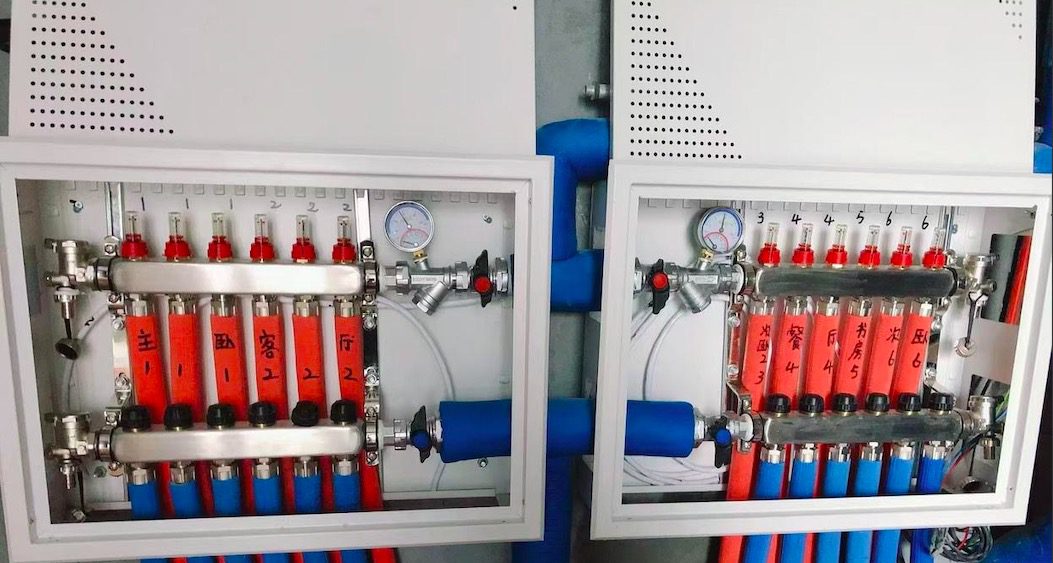
Maintain Pex Manifolds
Proper maintenance is much easier than fixing costly failures. Below, I break down five practical steps that work in both residential and commercial projects.
1. Inspect Connections Regularly
I always tell clients to start with simple visual checks. Loose connections cause leaks. Small leaks grow very fast.
What to Check
| Item | Why It Matters |
|---|---|
| Threads | Prevents drips and pressure loss |
| Fittings | Avoids sudden leaks |
| Manifold body | Detects early corrosion |
These checks take only minutes but prevent big repair work. I once helped a client in Europe reduce leak complaints by 60% after adding monthly checks.
2. Maintain Water Quality
Water hardness affects every metal part in a plumbing system. Hard water forms scale. Scale increases pressure and adds stress on the manifold.
Hard water is common in Canada and many U.S. regions. A simple water test can save you from long-term damage.
3. Flush the System Yearly
A PEX manifold works best when water flow stays clean. Sediment builds up in low-flow zones. Flushing removes sediment. This keeps every branch working smoothly.
4. Protect Against Temperature Shocks
PEX handles temperature changes better than metals, but rapid swings still stress the manifold. Use insulation when pipes run through cold areas. I learned this the hard way years ago when a project in the north failed because installers skipped insulation.
5. Replace Worn Parts Early
Small components like O-rings or adapters wear out. Replace them when they show signs of aging. Early replacement costs very little but prevents much bigger problems.
What are the Common Causes of Leaks in PEX Manifolds?
Leaks frustrate buyers and installers. They slow down projects and damage trust between the contractor and the end user.
The most common causes of PEX manifold leaks are loose connections, water quality issues, improper installation, damaged O-rings, and pressure imbalance.

Manifolds Common Leak Causes
I have seen these problems many times over the past 20 years. Most of them are preventable with a simple routine.
Loose or Over-Tightened Connections
Threaded connections need the right tightness. Over-tightening cracks fittings. Under-tightening creates gaps. I train many clients to use torque tools so installers avoid guesswork.
Poor Water Quality
Hard or acidic water causes corrosion. Even high-quality manifold materials suffer from unstable water chemistry. This is why water testing is a must during system commissioning.
Improper Installation
Many leaks start on day one. Installers sometimes twist PEX pipes too sharply. They also misalign fittings. This creates stress. Over time, stress becomes leaks.
Worn Seals and O-Rings
O-rings age faster when water temperature stays high. Heating systems often face this issue. Replacing them once every few years prevents sudden failures.
Pressure Issues
When system pressure is too high, even the best manifolds fail. Pressure regulators and gauges protect the whole system.
How to Fix Them?
Buyers often contact me when leaks already happen. They want a fast, clear solution.
You can fix PEX manifold leaks by tightening the connections, replacing damaged seals, cleaning scale, correcting pressure, and re-aligning pipes to remove stress.
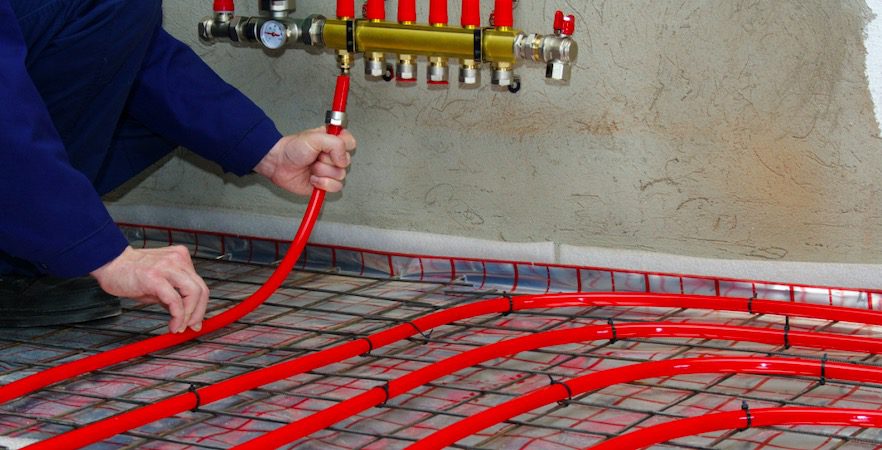
Fix Pex Manifolds Leaks
Below, I explain how to solve each problem step by step.
Fix Loose Connections
Use the correct size wrench. Tighten slowly. Stop when the connection feels firm. Never force it.
Replace Damaged O-Rings
Shut off the water. Remove the fitting. Replace the O-ring with the same material type. Always use approved O-rings to avoid future leaks.
Clean Scale or Debris
Flush the manifold. Open each branch one by one. This clears sediment. Many installers skip this step, and it creates long-term issues.
Adjust Water Pressure
Check pressure with a gauge. Residential systems usually perform best between 40–60 psi. If the pressure is too high, install a regulator.
Re-Align PEX Pipes
Make sure PEX pipes run smoothly without sharp bends. Gentle curves reduce stress on the manifold.
Regular checks and simple maintenance steps help your PEX manifold last longer and work more reliably in every system.
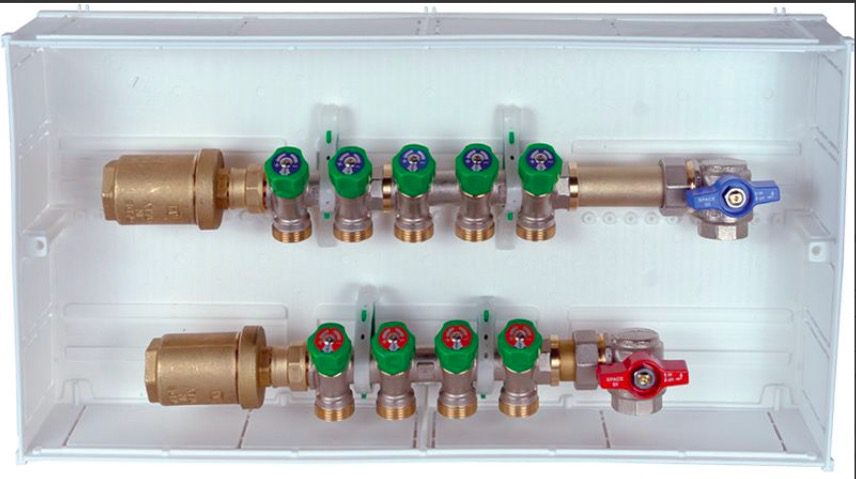
Pex Manifolds China Manufacturer



